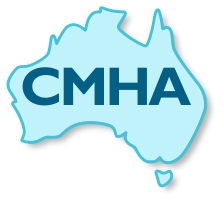Every year on 10 October, the world comes together to mark World Mental Health Day. World Mental Health Day serves as a powerful reminder that there is no health without mental health.
This year’s campaign focuses on the urgent need to support the mental health and psychosocial needs of people affected by humanitarian emergencies.
“Investing in mental health and psychosocial supports is investing in individual, family and community recovery,” said Kerry Hawkins, CEO, Community Mental Health Australia.
“Making mental health and psychosocial support a core part of emergency response not only saves lives but also strengthens communities and health systems for the future,” she added.
“During crises, nearly everyone experiences some level of distress and social disruption. Homes are lost, families are separated, and communities are fractured. Nearly everyone affected experiences emotional distress and disrupted community ties. These impacts often remain long after physical safety is restored, undermining recovery and resilience,” Kerry said.
“Beyond food, water, and medicine, survivors also need mental health and psychosocial support to cope, recover, and rebuild. Often, the best placed organisations to provide these supports are community-managed mental health organisations. They are deeply embedded in local communities and provide practical, flexible support that makes a real difference during and after emergencies,” added Kerry.
Emerging Minds have developed a Community Trauma Toolkit which is available online at: https://emergingminds.com.au/resources/toolkits/community-trauma-toolkit/
Download the Emerging Minds Toolkit Summary here: Toolkit Summary
This World Mental Health Day, let’s take a moment to reflect on how we are meeting the mental health and psychosocial needs of people affected by humanitarian emergencies.


